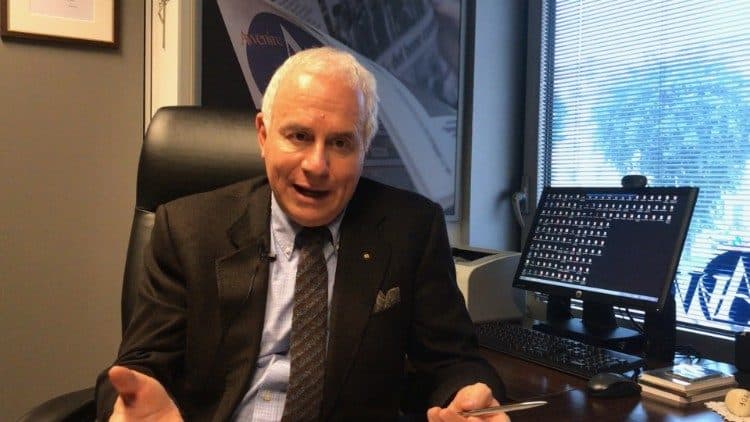ROME – In keeping with the law of unintended consequences, Pope Francis’s recent invocation of a “white flag,” designed to promote peace between Russia and Ukraine, seems instead to have sparked a budding civil war in Italian politics, pitting Catholics against secular progressives in the country’s main center-left party.
The focus for the tension is Marco Tarquinio, a veteran Italian journalist who served as editor-in-chief of Avvenire, the official newspaper of the powerful Italian bishops’ conference, between 2009 and 2023, and during much of that time he was also a consultor for the Vatican’s erstwhile Pontifical Council for Social Communications.
Tarquinio emerged as a forceful advocate for Catholic, and, more specifically, papal positions in public debates, and he’s remained so even after stepping away from his official roles. Specifically on Ukraine, he’s become among the most outspoken backers of Pope Francis’s calls for an immediate cease-fire and negotiations, breaking with the official line of both Italy’s center-right government and its main center-left opposition of strong support for Ukraine.
Tarquinio’s most celebrated, and controversial, take on the war came in a recent TV appearance: “If Zelensky would pack his bags, the war already would be over.” In another celebrated soundbite, Tarquinio objected when someone called Ukrainian defenders heroes: “The heroes are elsewhere, they don’t kill,” he said.
All of which brings us to the June 6-9 European elections, when voters across the continent will elect 720 members of the European Parliament. In Italy, candidates for the parliament are selected by political parties, and often they’re loyalists or functionaries who are owed a favor, or veteran pols who lost their last race and need a sinecure.
Every now and then, however, a party leader will decided to nominate a candidate to send a message, and such would seem to be the case this time around with Italy’s Democratic Party, its main center-left faction and the leader of the opposition to the center-right government of Prime Minister Giorgia Meloni.
Elly Schlein, the 38-year-old leader of the Democrats and a veteran of Barack Obama’s 2008 and 2012 campaigns in the U.S., appears set to make Tarquinio a candidate for the party, likely in his home region of Umbria. According to media reports, the idea was first floated by a small political movement in Italy known as “Democracy Solidarity,” which is close to the Community of Sant’Egidio, the country’s most prominent center-left Catholic movement.
In part, Tarquinio’s candidacy is being read in as an effort by Schlein to broaden the Democrats’ electoral base, appealing to Catholic moderates. That’s long been an ambition of Italy’s leftist factions, given the strong tradition of social Catholicism in the country and the widespread presence of progressive Catholic movements with strong organizational capacity.
More specifically, the Tarquinio candidacy is also seen as a potential way for the Democrats to peel off some support from the major left-wing challenger to the Democrats, the populist Five Star Movement led by former Prime Minister Giuseppe Conte, which has a quasi-pacifist position on Ukraine.
Conte and the Five Stars have repeatedly criticized what they see as the “Atlantic” position of both the government and the mainstream opposition, which, in Italian argot, is understood to mean pro-American. By tapping Tarquinio, therefore, Schlein and the Democrats might be in a position to capture some anti-war voters who otherwise might be inclined to side with the Five Stars.
(Most recent polls show that while Italians broadly sympathize with Ukraine, they’re opposed to furnishing Kyiv with weapons and support the idea of a negotiated settlement.)
However, the opening to Tarquinio has stirred strong opposition within the Democrats, from two contrasting factions.
On the one side are the centrists who support Ukraine’s efforts at self-defense and oppose any move that might be seen as capitulation to Putin. Former Minister of Defense Lorenzo Guerini, for instance, has said “enough with the ambiguities” on Ukraine, because “there’s a country that’s been victimized and an aggressor … we know whose side we’re on.”
At the same time, the more liberal and secularist wing of the Democratic Party has also rebelled against the idea of a Tarquinio candidacy, not for his positions on Ukraine, which they broadly share, but his stances on the “life issues” – abortion, euthanasia, civil unions, gay marriage, surrogate motherhood, and the need for a controversial anti-homophobia law known here as the “Zan bill” after the openly gay parliamentarian who introduced the measure, Alessandro Zan.
Maria Laura Rodotà, a leftist journalist, recently opined that backing Tarquinio would amount to a “slap in the face to those citizens who voted for Schlein in the primaries as something of the left.”
For the moment, Schlein’s options remain open, since the formal list of candidates for the European elections doesn’t have to be finalized until May 1. How she threads the needle may have real political consequences, since polls at the moment show Meloni’s “Brothers of Italy” party running ahead of the Democrats by about eight points. Overall, forecasts are for right-wing populists to make major gains in the European elections, though probably not enough to form a majority.
In the meantime, Tarquinio’s fate likely also will be seen as a sort of referendum on whether Catholics of his ilk (liberal on social matters, traditional on life issues) have a future in any of Italy’s major left-wing factions, or whether the country is destined to follow the path of the U.S. and other Western democracies, with that kind of voter becoming increasingly politically homeless.














